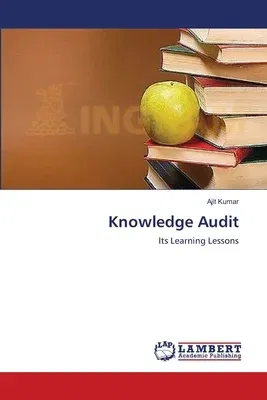Ajit Kumar
(Author)Knowledge AuditPaperback, 29 November 2013

Qty
1
Turbo
Ships in 2 - 3 days
In Stock
Free Delivery
Cash on Delivery
15 Days
Free Returns
Secure Checkout
Print Length
68 pages
Language
English
Publisher
LAP Lambert Academic Publishing
Date Published
29 Nov 2013
ISBN-10
3659494836
ISBN-13
9783659494833
Description
Product Details
Author:
Book Format:
Paperback
Country of Origin:
US
Date Published:
29 November 2013
Dimensions:
22.86 x
15.24 x
0.41 cm
ISBN-10:
3659494836
ISBN-13:
9783659494833
Language:
English
Pages:
68
Publisher:
Weight:
113.4 gm

